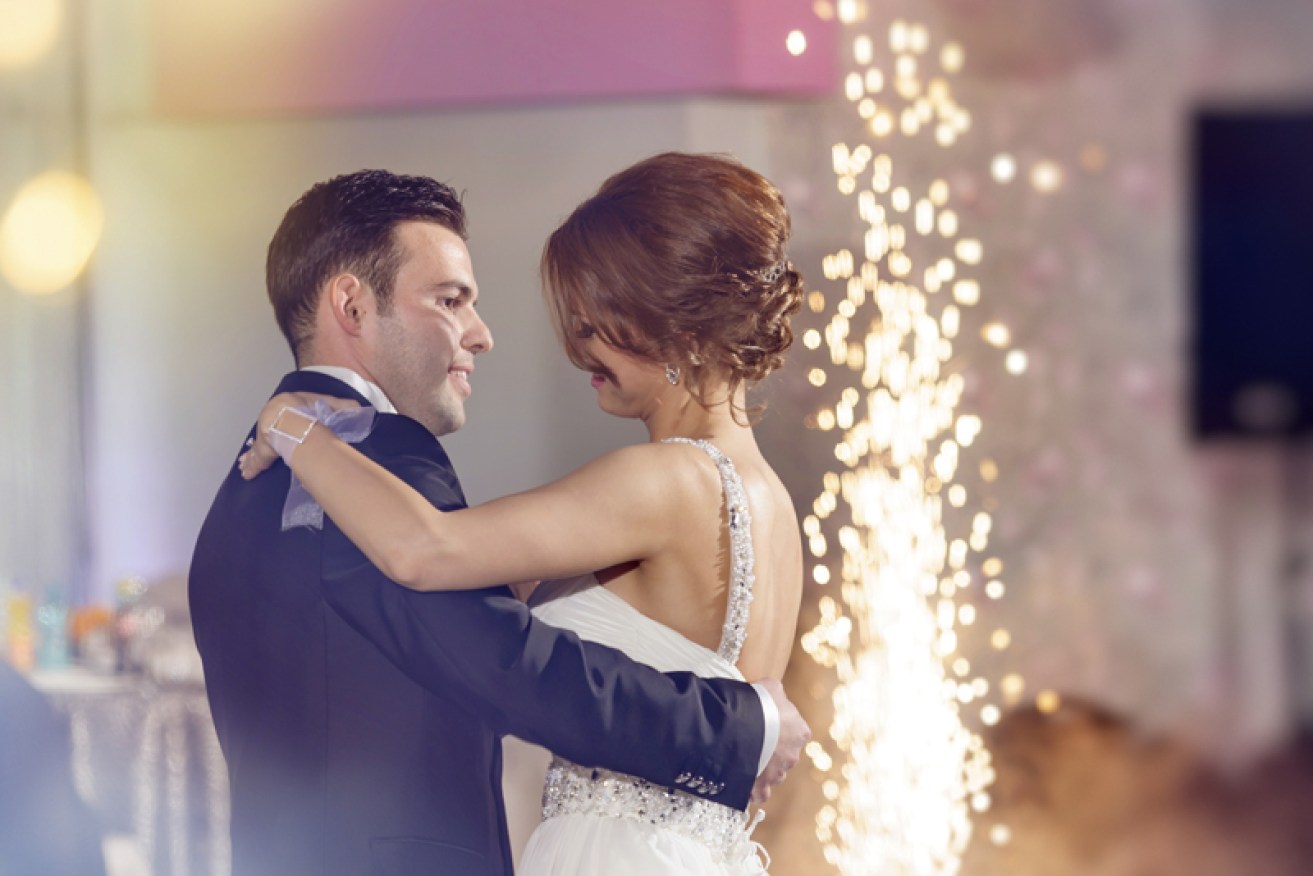Should guests be charged to attend weddings, birthdays, funerals?


Big wedding, big bills - but it's not nice expecting guests to underwrite your big day. Getty
Dearly beloved, we are gathered here today for the marriage of Bob and Cheryl – but before we get started, has everyone put their $100 per head in the pillow slip to cover their luncheon?
I went to such a wedding ten years ago. We all assumed that the bride, a natural grifter, was running her “big day’” as a profit deal. Well, apologies, dear girl. Little did I know you were following a trend.
This glaring boil on the face of polite society – guests being charged to attend the weddings, parties and birthday dinners of friends – was rudely burst this week by a mad-as-hell comment piece in The Washington Post. It was the vodka shot heard around the world.
“Stop charging me to attend your celebrations – #guestsdontpay’’ was the headline.

Are we overspending on weddings and expecting others to pay? Photo: Getty
The author, personal finance columnist Michelle Singletary, let rip: “Too many times, I’ve shown up for an event and been told after consuming the meal that I’m expected not just to pay for my food, but to chip in for the guest of honor.
“I’ve been at events when others – caught by surprise or knowing they don’t have the money – skip out without paying their share. This leaves the remaining guests to pick up the cost of what wasn’t paid.’’
Her rant was reported, debated and ultimately supported in blogs and news stories around the globe.
Ms Singletary suggests this trend is a result of a sense of entitlement by people who wish to be feted at a standard they can’t afford.
It could well be an expression of the status anxiety that Alain de Botton banged on about for several hundred pages.
Group dinners are one thing. But weddings with an entrance fee?
The issue was being discussed nine years ago at Essential Kids, when a guest poster called Bliss Bomb asked: “Does anyone have some nice wording for wedding invitations with respect to guests paying for meals?

Rattle the cup your wedding? Kate and her prince wouldn’t dream of such a thing! Getty
“I’ve been searching google for the last couple of hours and can’t find anything worded nicely. All I want to say is that we ask that guest please pay for their evening meal in lieu of presents and to please enclose $40 per head with their RSVP to save confusion on the night.’’
The general response was that Bliss Bomb was being tacky.
On Friday, February 9, Mamamia ran a piece headlines: “I’ve been invited to a friend’s wedding. But I’m being expected to pay $2800.’’
Ana Retallack, who runs a Melbourne-based etiquette school called The Standard Companion, and previously worked for Buckingham Palace overseeing major ceremonial events, says the wedding entrance-fee trend is a new twist on “keeping up with the Joneses – and expecting the Joneses to foot the bill”.
This is a consequence of the madness of so many people wanting a bigger and better wedding that they can’t actually afford.”
She suggests people scale down and live within their means.
“Cut down your list of guests for a start. Get rid of the hangers-on and people you haven’t spoken to in years. And remember that a wedding is not an eighteenth birthday party where everyone chips in.’”
Nicholas Hookway is a sociologist with the University of Tasmania whose research focuses on how morality, identity and giving behaviours are being reshaped by wider social change.
Dr Hookway The New Daily: “Perhaps I’m not far away enough from my poor university student days or I’ve got a terrible read on modern manners, but in my social milieu it would not be an etiquette breach for party attendees to pay for dinner.
“To the contrary, for the host to pay for everyone at their birthday dinner would be seen as an egregious display of wealth; an ugly attempt at flashing economic capital.’’
He makes the point that etiquette, like other expressions of social norms, from laws to codes of conduct, are deeply influenced by social factors, such as class, generation and age.
“There is most likely a generational difference at play here. These are older, middle-class social norms that don’t reflect the lives of younger generations.
“In our hurried worlds, the gift of time – the gift of being there – amidst the normalised chaos of work and family is seen as more than enough. And with younger generations struggling to pay high-rents or save for homes, let alone secure permanent positions, the idea of paying for all your buddies is out of the question.”
Yeah, but what about weddings? “Weddings,’’ Hookway writes in an email, “are a different matter!”








